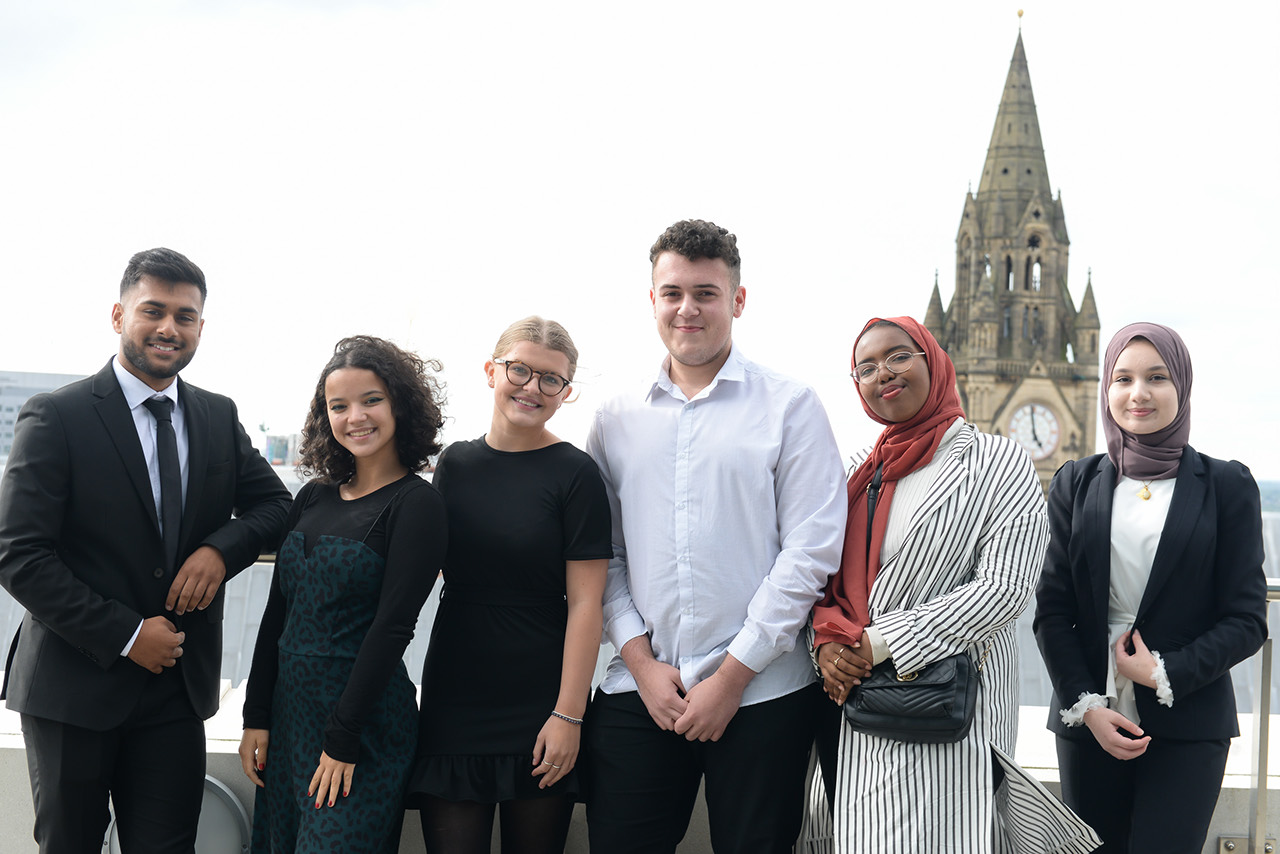The EY Foundation is a charitable company registered in England and Wales and Scotland with registered charity number 1157154 and SC045076. It is also a member firm of Ernst & Young Global Limited

For National Apprenticeship Week 2022 we’re celebrating two EY Foundation alumni who, since completing their Smart Futures programme, have successfully secured apprenticeships.
Kerr Lawrie is a Smart Futures graduate based in Edinburgh and is completing his Chartered Accountancy with ICAS as he works as an audit apprentice for EY.
James Manley took part in Smart Futures 2019, completing a business placement within Tax Technology and Transformation, and has since joined that team in EY as a Digital Apprentice where he is completing a Digital and Technology Solutions degree.
We asked Kerr and James to reflect on their experience and share their advice for other young people exploring this route.
Kerr, James – what do you enjoy about being an apprentice?
Kerr: I enjoy learning on the job and being able to see what I’m taught at ICAS in a real-life situation. I also enjoy being able to meet a variety of people and work on different projects.
James: I really enjoy my job – the people I work with are amazing! It is great to work with such likeminded people who are interested in technology. I really enjoy working at EY as I love the culture here and this is something I was even able to get a flavour of during my short time on work experience here. I enjoy the responsibility I am given as I am actively contributing to live projects which our clients are using. I really enjoy the structure of one day a week at university, it makes learning for our qualification much more manageable.
What skills have you learnt during your apprenticeship?
James: As an apprentice entering the working world for the first time, I have learnt and developed many different skills, particularly my communication skills – written and verbal. I have also had to develop my time management skills, juggling my daily work with studying for my qualification and maintaining a work/life balance. In addition, being a Digital Apprentice, has allowed me to develop more technical skills such as coding, data science skills and AI knowledge.
Kerr: I have learnt a host of technical and personal skills during my apprenticeship such as time management, computer skills (Excel, Word, PDF etc) and a host of specialised skills related to accountancy/audit.
What do you wish you’d have known about being an apprentice before you started?
Kerr: The jump from school to work isn’t as bad as you think!
Why did you choose an apprenticeship rather than other routes into work?
Kerr: I already had a clear career path in my head of working in accountancy/financial services. Being an apprentice allowed me to learn on the job whilst also gaining my Chartered Accountancy from ICAS.
James: I wanted to go into the technology industry and felt that at the time I didn’t have the required knowledge and skills and felt that I needed to learn whilst on the job – and an apprenticeship allows that! I didn’t want to go to university full-time because I feel I am a much more practical learner – I learn by doing. I can learn to code and learn about other key topics by taking part and actively working on it in the workplace.
Do you have any advice for other young people wanting to become an apprentice?
James: Don’t be discouraged if your school or college is more focused on university. Look into the areas you’re interested in and see what different apprenticeships there are; even within technology, for example, there are a lot of different apprenticeships – different levels and different areas (e.g. Data Analytics, Software Engineer, Cyber Security) so look into ones you think are more aligned to your interest. Also, research companies that offer apprenticeships and attend ‘insight days’ to find out more information.
Kerr: Search online for apprenticeships, there’s lots of variety and opportunities out there.
How can employers continue to make apprenticeships attractive to young people?
James: Employers can make apprenticeships attractive by allowing their apprentices to take part in worthwhile and engaging projects. Allowing apprentices to feel like they are contributing is a big thing – they’re not just there to do your printing!
They should also pay apprentices above the national minimum wage, to reflect the value and worth they bring to the table. Advertising apprentice starting salaries would help deconstruct the misconceptions of apprentices being poorly paid – quite a lot of employers choose to pay more!
Finally, they should engage with schools, colleges and sixth forms and inform young people of the opportunities available – some young people just don’t know where to search for the information – so showcasing what you do can really open their eyes to apprenticeships being a great opportunity!


